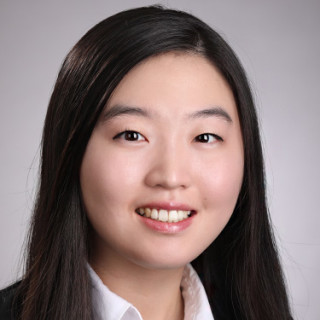
A good third-year medical student is a chameleon; you blend into the rotation. You try to walk and talk like your attendings and residents while figuring out whether this could be the field for you.
Throughout the third year, I enjoyed my rotations. I imagined myself as a resident or attending of the specialty I was rotating in. When I shared some of my thoughts with physicians, many were supportive, but the few that weren’t were bitingly dismissive.
“Pathology? What, you don’t like people?”
“Ob/Gyn? Why don't you become a real surgeon, instead?”
“Radiology? You want to be replaced by a robot?”
“Dermatology? You want to count moles and pimples all day?”
The above were actual comments that I received.
The field of medicine is incredibly rich and diverse; every specialty has its own quirks. Still, it was disappointing to hear a physician put down another specialty, especially in front of an impressionable medical student. After all, we are all ostensibly all in the field for the same reason—to take care of patients.
Eventually, I stopped giving a direct answer to the question: “So, what field are you interested in?” I took the path of least resistance by remaining as vague as possible. “I’m still not sure yet,” I’d day, “I’m trying to figure it out.” I saw other medical students doing the same, probably not wanting their specialty of interest to color how their residents and attendings thought about them, especially considering the highly subjective evaluations given in third-year clerkships.
To me, the stereotypes that clinicians cast on each other often belie fundamental misconceptions about the impact of other specialties in patient care. This makes sense. Many physicians haven't spent time in another discipline since medical school or intern year, and with entrenchment, it’s easy to forget the value every specialty contributes.
Still, I wish I had been able to defend the fields I was interested in. I wish I had explained that pathologists train extensively to recognize the visual nuances of various body tissues, which is critical to establish diagnoses. I wish I had retorted that obstetricians and gynecological surgeons are, in fact, incredible surgeons who often have to take care of two lives simultaneously. I wish I had pointed out that radiologists do more than read images (which is difficult enough considering the complexities of the human body and the numerous imaging modalities that exist). I wish that I had explained that dermatologists take care of so many skin illnesses beyond acne and that often, the skin provides an important glimpse into the systemic processes occurring in a body.
But let’s be honest, as a medical student, I don’t have the luxury of correcting my residents, let alone my attendings. At this point in my training, all I can do is nod and smile.
I believe that clinicians need to maintain civility in medicine, especially toward other specialties. Yes, some specialties are undervalued and underappreciated. Yes, some specialties are more lifestyle-friendly. Yes, some specialties demand Herculean willpower and strength from its practitioners. But regardless of the differences between medical specialties, we need to maintain respect for our colleagues, because we’re all in this together.
Yoo Jung Kim is a medical student at Stanford University and the author of “What Every Science Student Should Know” from University of Chicago Press. Her articles have appeared in the Washington Post, The Mercury News, The Seattle Times, and KevinMD. She is a 2018-2019 Doximity Author.







